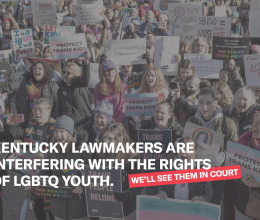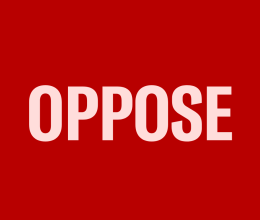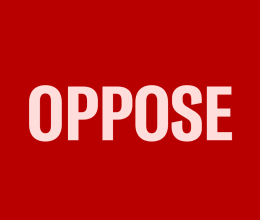
Washington, DC - Chase Strangio, co-director of the American Civil Liberties Union’s LGBTQ & HIV Project, today presented on behalf of the plaintiffs at oral arguments in U.S. v. Skrmetti. Solicitor General Elizabeth Prelogar argued on behalf of the Department of Justice. The outcome of the DOJ’s challenge to the Sixth Circuit’s decision will determine how Kentucky’s case, as well as Tennessee’s, moves forward, and a favorable decision would have important implications for pending challenges to categorical bans on care for transgender youth in multiple states.
“Our plaintiff families have been waiting for this day,” said ACLU-KY Legal Director Corey Shapiro. “Our partners at National ACLU presented the facts: the law is unconstitutional because it limits healthcare for transgender youth based on their sex. We remain hopeful the justices will agree that the Sixth Circuit applied the wrong level of review and reverse that decision. Kentucky families simply want the freedom to be themselves, without government interference.”
Kentucky’s law, also known as Senate Bill 150, prohibits the prescription of medications that are widely available to others only to transgender adolescents and young adults , even if the young person, their parents, and their medical providers all agree that treatment is medically necessary and appropriate. This discriminatory ban prevents families from getting their adolescent children the care that they need.The law also forces transgender youth who have been receiving care to stop following their prescribed treatment plan.
"It was inspiring to hear Chase Strangio advocating for trans youth, and all trans people, in this historic argument," said D Dangaran, co-chair of the National Trans Bar Association. "Trans issues have been before the Court before, starting with Dee Farmer's prison rights case argued in 1994, but it is so significant that this major Equal Protection case, which may have long-lasting impacts on the access to gender-affirming care in this country, was argued in part by a trans attorney who has spent his life at the forefront of trans advocacy. No matter what the Court decides, today it heard an excellent argument from an excellent trans lawyer, and that itself is a win for the entire trans community."
“The plaintiffs today made a strong case that, on its face, this law discriminates by barring medications based solely on a person’s birth sex,” said Shannon Minter, Vice President of Legal at the National Center for Lesbian Rights. “The State of Tennessee had no effective response to that obvious fact, which several justices made clear. Based on today’s argument, we are hopeful the Court will rule that Tennessee’s law discriminates based on sex and must therefore be subject to the same high standard of review applied to all other sex-based laws. That would be a huge victory and would provide clear guidance for the lower courts about how to evaluate these laws.”
“I feel very hopeful after today’s argument. The Plaintiffs presented a powerful case explaining how these bans unfairly target transgender adolescents and deny them medications that all other adolescents can obtain when medically indicated. You don’t have to know about health care to know that these bans are not about medicine – they are about discrimination,” said Jennifer Levi, Senior Director of Transgender and Queer Rights at GLBTQ Legal Advocates & Defenders (GLAD Law). “They insert politicians between families and medical providers and block parents from getting their transgender children the health care that allows them to be healthy and thrive. The stigma and discrimination baked into these laws is intentional, clear, and devastating.”
“If America is to make good on its promises of freedom without favor and equality without exception, families and their doctors, not politicians, must be able to make health care decisions for transgender youth,” said Rachel Laser, president and CEO of Americans United for Separation of Church and State. “We hope the Court will protect everyone’s right to live as their true selves, free from discrimination or litmus tests, and to access the medical care they need.”
"Young people and their families - including young people who are transgender - need access to medically necessary treatment," said Thomas W. Ude, Jr., Legal and Public Policy Director at Mazzoni Center. "It is crucial that the Court recognize and affirm, and that we continue to advocate for, their right to determine, with their doctors, what is best for them without unjustifiable and discriminatory government interference."
###
The American Civil Liberties Union (ACLU) of Kentucky is freedom's watchdog, working daily in the courts, legislature and communities to defend individual rights and personal freedoms. For additional information, visit our website at: www.aclu-ky.org.
The National Center for Lesbian Rights (NCLR) is a national legal organization committed to advancing the human and civil rights of the lesbian, gay, bisexual, transgender, and queer community through litigation, public policy advocacy, and public education. Since its founding, NCLR has maintained a longstanding commitment to racial and economic justice and the LGBTQ community’s most vulnerable. www.nclrights.org.
Through strategic litigation, public policy advocacy, and education, GLBTQ Legal Advocates & Defenders (GLAD Law) works in New England and nationally to create a just society free of discrimination based on gender identity and expression, HIV status, and sexual orientation. www.glad.org
The National Trans Bar Association (NTBA) supports transgender and gender non-conforming people in the legal profession. NTBA strives to secure formal legal protections for transgender and gender non-conforming people to meaningfully address issues of equity. www.transbar.org.

